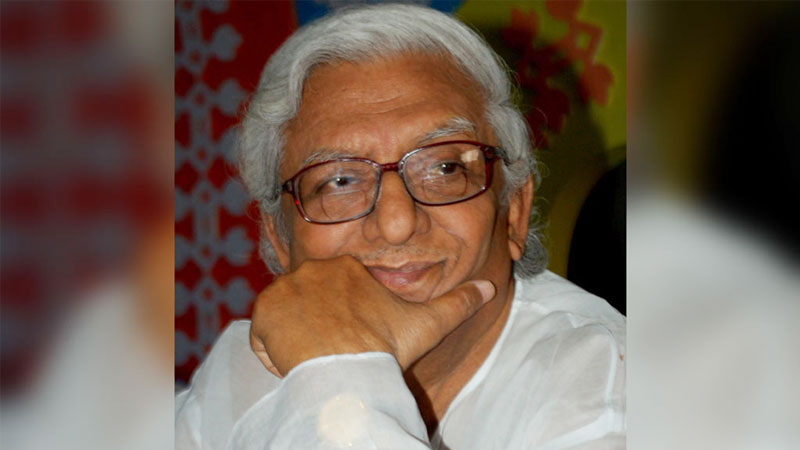Kamal Lohani: The voice of victory

“We have won. The Pakistan army has been forced to surrender to our allied forces.”
It was Kamal Lohani’s voice on the Swadhin Bangla Betar Kendra on December 16, 1971, for which millions of Bengalis had been longing for throughout the nine-month Liberation War.
Abu Nayeem Mohammad Mostafa Kamal Khan Lohani, also known as Kamal Lohani, served as the head of news of Swadhin Bangla Betar Kendra during the war.
A legendary journalist, an epic figure of Bangladesh's political and cultural history, Kamal Lohani passed away in Dhaka on Saturday just six days before his 86th birthday.
He was born at Khan Sotala village under Ullapara upazila of Sirajganj district on June 26 in 1934.
His father’s name was Abu Yousuf Mohammad Musa Khan and mother’s name was Rokeya Khan Lohani.
Kamal Lohani received his secondary education at Pabna District School in 1952 before going to Pabna Edward College where he completed his intermediate and graduation.
He marked the beginning of his involvement in politics at his final year at Pabna District School when he took part in the Language Movement of 1952.
He was jailed and tortured several times for his political activism.
In 1953, Kamal Lohani arrested after he joined a bid to block Muslim League leaders’ arrival in Pabna. He was arrested again in 1954 and this time he was drawn to the ideology of communism.
He was arrested again a year later and ended up sharing a jail cell with Father of Nation Bangabandhu Sheikh Mujibur Rahman and Tajuddin Ahmad.
In 1962, Kamal became the general secretary of cultural organisation Chhayanaut Sangeet Vidyatan. Later in 1967, he formed Kranti, a cultural organisation reflecting his political ideology that gave a platform to a number of famous artists, including Altaf Mahmood.
He was also president of Bangladesh Udichi Shilpigosthi, the largest anti-communal, progressive and voluntary organization of Bangladesh.
In 1971, Kamal Lohani joined War of Independence in multiple capacities, as an artist, a journalist and a political activist. Kamal was the head of news of Swadhin Bangla Betar Kendra during the Liberation War.
“I joined there on May 25 as the chief news editor. In the beginning, as you understand, it was not possible for us to compartmentalise all the responsibilities and works into different sections. As a result, responsibilities overlapped.
The news editor had to look after the music section while the drama producer had to present news. But as we started to have more people, things became easier for us and all the different sections became strengthened,” Kamal Lohani said in an interview with a newspaper on December 17, 2010.
He gave his voice to announce the surrender of the Pakistan army to the allied force on December 16, 1971.
After the assassination of Bangabandhu on August 15, 1975, Kamal Lohani became immersed in a socio-cultural movement.
In 1981, he resigned as the editor of the Daily Barta and started organising cultural movements with renewed vigour.
Kamal began his career in journalism with the Daily Millat in 1955. Since then, he worked in important positions in Azad, Sangbad, Purbodesh and Dainik Barta. He has also served as the president of Dhaka Union of Journalists.
A serious activist and writer, Lohani produced many books, including Edesh Amar Gorbo, Bhasha Sankskriti O Ganomadhyam, Amader Sankskriti O Sangram, and Rajniti Muktijuddho Swadhin Bangla Betar.
He also served as the director-general of Bangladesh Shilpakala Academy from 2009 to 2011.
For his contribution to journalism, Kamal Lohani was awarded Ekushey Padak, the second-highest civilian award in Bangladesh, in 2015.
“Back then, we (journalists) not only envisaged a prosperous future, but also implemented that risking our own lives. We tried to direct the whole nation in the light of nationalism and socialism. Now the journalists are more inclined toward commercialisation... Now time has come for us to think more deeply about the pros and cons of the country. And the journalists, like we did in 1971, should take the people toward the right direction,” Kamal Lohani said during his December 2010 interview.



